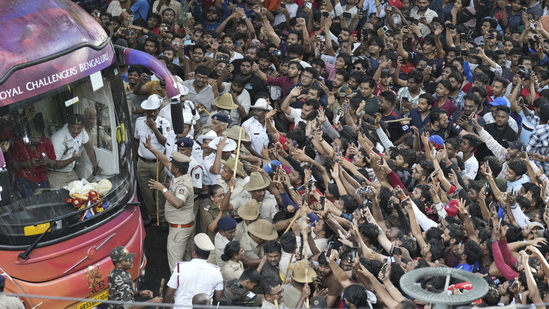Tragedy Strikes: Bangalore Stampede Fallout
The deadly stampede during the RCB victory celebrations in
Bangalore has once again exposed the glaring lapses in crowd management and
administrative apathy. What should have been a joyous occasion turned into a
nightmare, leaving eleven dead and several injured. The tragedy raises
uncomfortable questions about who was responsible and what could have been done
to prevent it. Initial reports suggest a toxic mix of poor planning, inadequate
police presence, and misleading social media updates contributed to the chaos.
Yet, in the days that have followed, the outrage has begun to fade, replaced by
the familiar cycle of hollow promises, political blame games, and superficial
inquiries.
Instead of a thorough investigation, however, the response
has been predictable. The suspension of some senior police officers appears
more like a token gesture than genuine accountability. Meanwhile, politicians
have wasted no time in trading accusations, with the opposition blaming the
Congress government and the ruling party deflecting criticism. The focus has
even bizarrely shifted to whether cricket stars like Virat Kohli should be held
responsible: a distraction from the real issue of administrative failure.
The deeper issue lies in India’s systemic indifference
toward public safety protocols. Stampedes, fires, and structural collapses
follow a script—negligence, outrage, then amnesia. Authorities treat human
lives as expendable statistics, relying on knee-jerk reactions rather than
preventive governance. Until accountability is enforced beyond suspensions and
headlines, such tragedies will remain inevitable, their lessons unlearned.
What is most disheartening is how quickly such tragedies
vanish from public memory. The media moves on, the political circus winds down,
and the victims are forgotten, until the next stampede, the next fire, the next
bridge collapse. Each time, there are inquiries, arrests, and promises of
reform, yet nothing changes. The Bangalore stampede is not an isolated incident
but part of a recurring pattern of negligence. Unless there is a systemic
overhaul in how public events are regulated and enforced, such disasters will
keep repeating. For now, the city mourns, but soon, even that will fade—until
the next time.

No comments:
Post a Comment